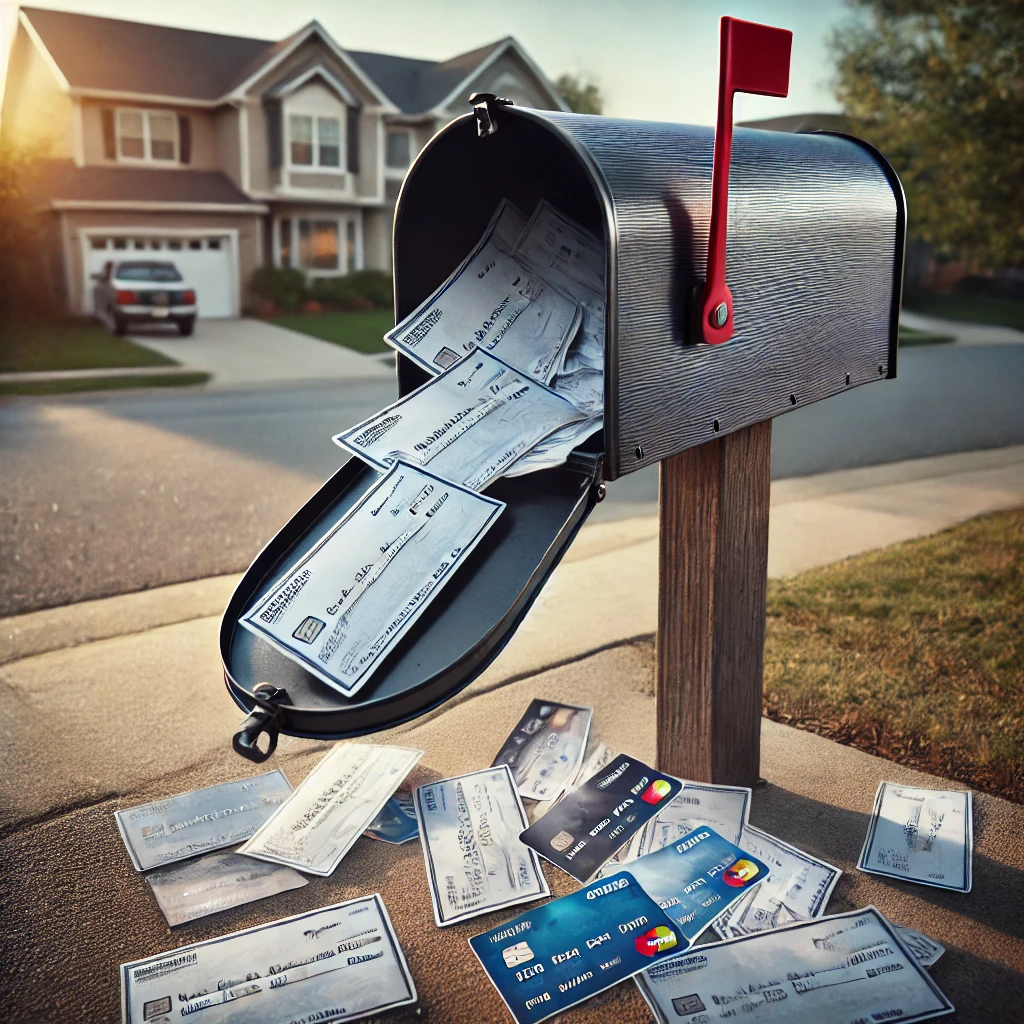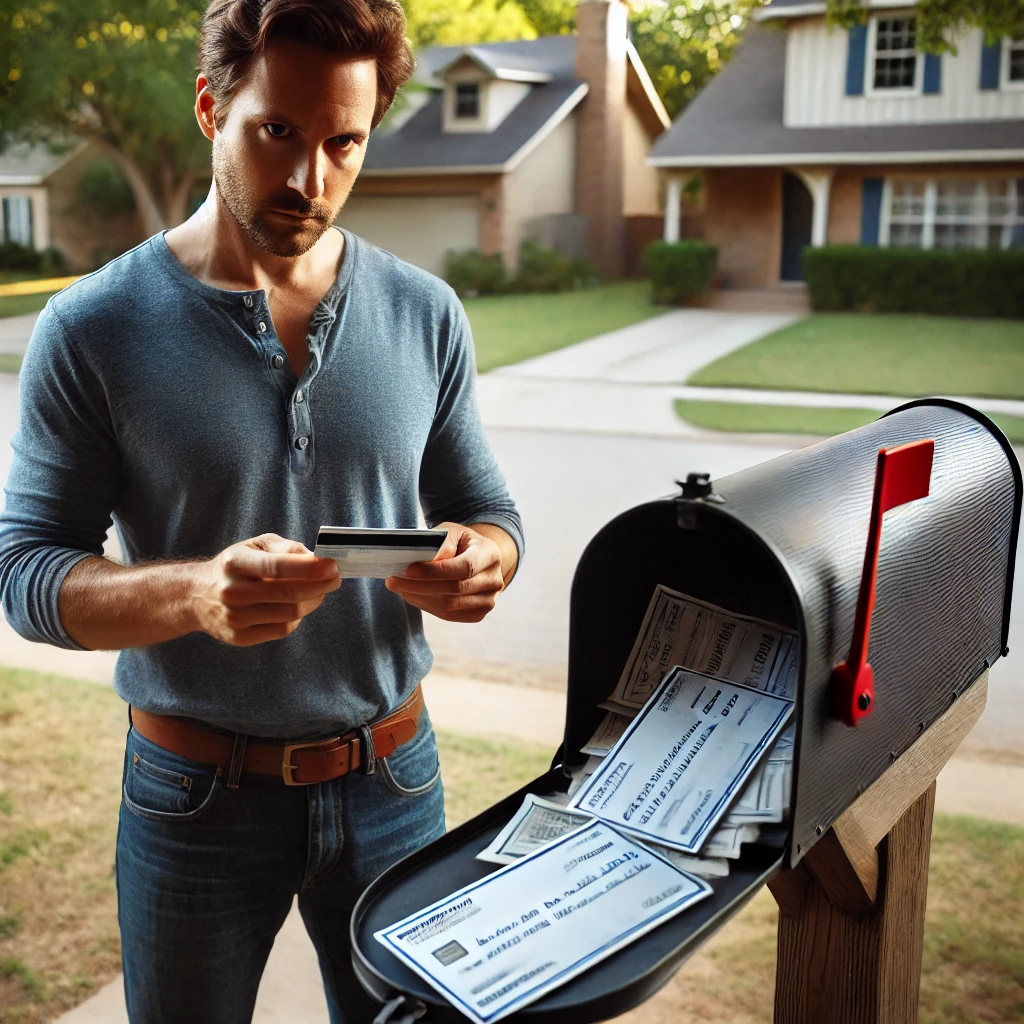stolen mail checks credit cards
Discover how stolen mail checks credit cards at risk. Learn effective strategies to prevent theft and protect your financial information today.
Introduction: stolen mail checks credit cards
Have you ever wondered how vulnerable your personal information is when it’s sitting in your mailbox? For many, stolen mail is an invisible threat that can lead to significant financial harm. Whether it’s a check or a credit card, thieves can use stolen mail to commit identity theft, leaving you to deal with the consequences.
In today’s digital age, it’s easy to overlook the risks associated with physical mail, but the reality is that checks and credit cards remain prime targets for criminals. Understanding how stolen mail impacts your finances and what you can do to prevent it is crucial to safeguarding your identity.
In this post, we’ll explore how stolen mail—especially those containing checks or credit cards—can expose you to fraud, and we’ll guide you through the steps you can take to protect yourself. Ready to learn how to keep your personal information secure? Let’s dive in.
1. Understanding the Threat of Stolen Mail
When was the last time you thought about the safety of your mailbox? We often assume our mail is secure, but the reality is that stolen mail is a growing issue that can lead to serious financial consequences. The checks and credit cards you receive are particularly attractive to thieves, and once they’re in the wrong hands, they can cause significant damage.

What Makes Mail Theft a Common Issue?
Mail theft isn’t just about nosy neighbors or lost letters. It’s a calculated act, often targeting your financial documents like checks or even that new credit card you’ve been waiting for. Mailboxes, especially those left unchecked for days, offer easy access to criminals.
Types of Sensitive Information Found in Your Mail
Think about what’s in your mail:
- Bank statements
- Credit card bills
- New checks or cards
Each of these items contains sensitive personal data. Once someone has access to your mail, they can use this information for fraudulent activities such as opening a new account or making unauthorized purchases on your stolen credit card.
Common Targets: Checks, Credit Cards, and Financial Documents
Why are checks and credit cards so appealing to thieves?
- Checks can be altered, forged, or cashed by someone else, resulting in stolen funds from your account.
- Credit cards can be activated and used for unauthorized transactions, putting your finances at risk.
The ease of access and the value of what’s inside your mailbox make it a prime target for fraud. Understanding these risks is the first step in protecting yourself from stolen mail.
By being proactive and aware of the dangers lurking in your mailbox, you can take the necessary steps to prevent becoming a victim of mail theft.
2. How Stolen Mail Impacts Your Credit Cards
Have you ever considered what could happen if your credit card information fell into the wrong hands? Stolen mail can have serious consequences, especially when it involves your credit cards. From unauthorized transactions to long-term credit damage, the risks are real—and the impact can be devastating.
Identity Theft: Opening New Accounts in Your Name
One of the most concerning risks of stolen mail is identity theft. When thieves get access to your mail, they can use your personal information to open new credit cards in your name. This can spiral into a nightmare of unpaid bills and a plummeting credit score, all from a stolen card you never knew existed.
Credit Card Fraud: Unauthorized Transactions
Picture this: you check your credit card statement and see purchases you didn’t make. This is a common result of credit card fraud, where thieves use your stolen credit card for unauthorized transactions. It might start small—just a few charges—but if unnoticed, it can quickly escalate, leaving you responsible for fraudulent spending.
Here’s what thieves can do with your stolen credit card:
- Make online purchases using your credit card details.
- Use your card for in-person transactions if they’ve intercepted your physical card.
- Attempt cash advances, maxing out your card’s limit.
Card Replacement Delays: The Risks of Lost Mail
You might think, “If my new card gets stolen in the mail, I’ll just get a replacement.” But it’s not always that simple. Delays in receiving a replacement credit card can leave you vulnerable, especially if the stolen credit card is activated by the thief before you even realize it’s missing.
Mail delays could mean you’re left without a usable credit card, putting your finances on hold. During this time, someone else could be racking up charges on your account, further complicating the situation.
By understanding how stolen mail impacts your credit cards, you’re better equipped to protect your financial well-being. Taking proactive steps now can help you avoid the lasting effects of credit card fraud and identity theft.
3. The Dangers of Stolen Checks
Have you ever thought about what happens if someone steals your check before it reaches its destination? Stolen checks are a serious threat, as thieves can manipulate or misuse them to drain your bank account. While checks may seem like an old-school way to pay, they still contain a lot of personal and financial information that criminals can exploit.
Check Fraud: Altered or Forged Checks
One of the biggest risks with stolen checks is check fraud. When thieves get their hands on your checks, they can alter details like the payee’s name or the amount. They may even try to forge your signature, making it look like you authorized a payment. The result? Unauthorized withdrawals from your bank account that can be hard to reverse.
Here’s how check fraud can affect you:
- Altered checks: Thieves can change the check amount or recipient.
- Forged checks: Criminals can create counterfeit checks using your stolen information.
How Thieves Cash Stolen Checks
You may wonder, “How do thieves actually use stolen checks?” Unfortunately, the process is simpler than you might think. Criminals can either cash the check at a bank or deposit it into an account. Once the funds clear, it becomes increasingly difficult to trace or recover the stolen money.
They might also use a technique called “washing,” where they remove the ink from the check and rewrite it to suit their needs. In some cases, thieves may even sell stolen checks on the black market, turning your financial documents into quick cash.

Impact on Your Bank Account and Financial Stability
When a thief cashes a stolen check, the effects on your bank account can be immediate and severe. You might find your account overdrawn or discover missing funds that were intended for critical payments like rent or bills. The stress of resolving check fraud can take weeks or even months, during which time your financial stability hangs in the balance.
Additionally, check fraud can damage your relationship with your bank. You may face challenges when trying to open new accounts or access funds while the fraud investigation is ongoing.
The threat of stolen checks is real, but by understanding the dangers, you can take proactive steps to secure your financial documents. Preventing check fraud starts with knowing what’s at stake and keeping your mail out of the hands of criminals.

